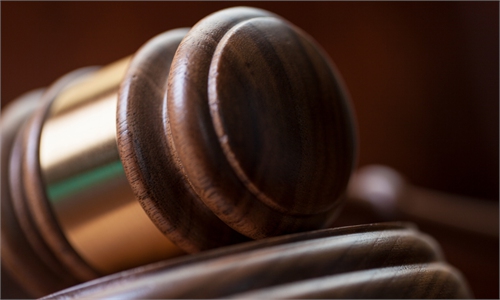China celebrates World Intellectual Property Day with coordinated regional development strategy
Promotional materials at the World Intellectual Property Day 2024 and Beijing-Tianjin-Hebei Copyright cooperation forum Photo: Courtesy of the organizer
Ahead of the 24th World Intellectual Property Day that is set for April 26, China's cultural enforcement departments jointly signed the Beijing-Tianjin-Hebei Regional Copyright Enforcement Cooperation Agreement in Beijing on Friday. Officials and experts highlighted that the move will further deepen regional cooperation in copyright enforcement and promotion, social services, as well as talent cultivation.
2024 marks the 10th anniversary of the beginning of coordinated development in the Beijing-Tianjin-Hebei region. World Intellectual Property Day 2024 and the Beijing-Tianjin-Hebei Copyright cooperation forum, themed "Promoting Cultural Inheritance and Development, Stimulating Innovation and Creativity," focused on promoting the inheritance and development of excellent Chinese traditional culture under new technological trends, emphasizing the role of copyrighting in empowering the creative transformation and innovative development of culture.
Liu Jinquan, head of the Tianjin Copyright Association, told the Global Times that future cooperation among Beijing, Tianjin, and Hebei in copyright matters will become more frequent and convenient, enhancing copyright recognition and strengthening exchanges and cooperation to make the region a model area for the innovative development of the copyright business in China.
At the event, the China Copyright Association released 10 major copyright events in China in 2024, including the 50th anniversary of China's cooperation with the World Intellectual Property Organization, a significant increase in national copyright registrations, and discussions on whether AI-generated works constitute infringement.
On Saturday, as part of the series of activities, a forum on copyright governance and artistic development in the AI era was held at the Communication University of China. Discussions focused on new challenges in copyright governance and artistic development in AI scenarios, including AI technology development and application, AI and copyright management, the impact of AI on artistic development, and more were held.
Feng Hua, Secretary-General of the Capital Copyright Association, stated at the event, "This year, we will focus on the field of artificial intelligence, including discussions on copyright protection for AI-generated products, such as copyright and ownership after the generation of works."
Feng told the Global Times that China is at the forefront of AI-generated copyrights globally, and while various countries are continuously optimizing their approaches, suggestions and guidance on the use of AI should be provided, encouraging the development of the AI industry.
She emphasized that the greatest copyright infringement risks in the training database's input and output stages involve the infringement of reproduction rights and adaptation rights.
"Solving intellectual property challenges associated with generative artificial intelligence requires the use of multiple institutional tools, the establishment of diversified solutions, and the creation of a comprehensive solution," she said.
The event also launched many other activities, including the Beijing-Tianjin-Hebei copyright campus tour, focused on exhibiting intangible cultural heritage crafts and their innovative achievements, such as the Beijing Jingtailan cloisonne, the traditional Beijing mascot Lord Rabbit, known as Tu'er Ye in Chinese, Tianjin folk art Clay Figure Zhang, and more.




